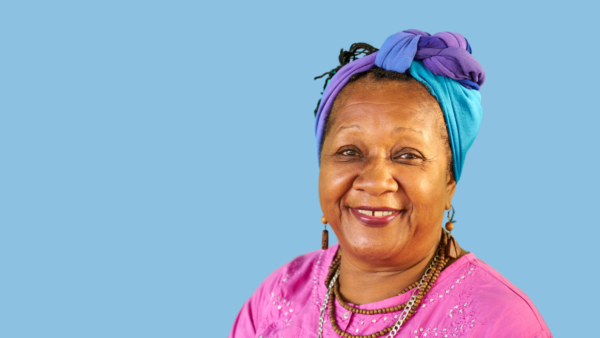Podcast transcript:
Nature vs nurture – a 2,500 year old debate
I’m back after a summer break of no work and no podcasting, I’m feeling refreshed and delighted to be able to reconnect with you and get back to the topic of strengths and how your strengths can support you day to day throughout your entire life.
In today’s podcast, I want to take a request from one of our listeners, also a question I’m often asked when speaking to our strengths practitioner community and give you my thoughts on the nature-nurture debate, with a specific focus on strengths. So the question I’m posing myself is ‘to what extent are our strengths inherited from our parents (that’s nature) and to what extent do we develop them independently of genetics (that’s nurture)?’. So let’s go.
Let’s remind ourselves – what are strengths again?
First of all, we need to kind of ‘locate’ strengths – so we define strengths as ‘those qualities which energise us and which we’re great at or have the potential to become great at.’ So here we’re kind of in personality, values, motives and behaviour territory and each of those things feeds into our strengths and also informed how we developed our strength assessment tool, Strengthscope, in the first place. So if strengths sit in that space, what does the research tell us about the heritability of strengths, or other aspects of our personality?
What is the research on nature vs nurture telling us?
Well this is a debate that has been raging since wait for it, 400 BC and while research now isn’t what it was back then (that is, there have been some advancements in the past 2,500 years in terms of scientific method), there’s still…actually…nothing definitive in answering that question, particularly as regards personality, and strengths as an outworking of personality.
Well over 100 years ago now, in the world of psychology, the psychodynamic movement spearheaded by Sigmund Freud and Carl Jung, proposed that personality was about 50% inherited and 50% shaped by environmental influences. More recent researchers, particularly geneticists, argue that it’s a much higher percentage of our DNA and biology that’s shaped by genetics than by environment. That said, geneticists haven’t fully explored personality yet, so the jury’s out.
But the most interesting finding out there I’ll share with you now. It takes me back to a conversation I had with Professor of Social Psychology Chris Brotherton from Herriot-Watt University in Scotland about 15 or 20 years ago. I asked Chris the age old question ‘What percentage of our personalities is inherited and what percentage is shaped by our experiences, is it about 50/50?’ (as was the received wisdom at the time) and without hesitation, he said ‘Paul, it’s 100% of both.’ My first thought was ‘wily old fox, very clever answer, I’m not sure I fully understand it but it’s probably true.’ And then, in a rare moment of enlightenment, a few years later, once my first son was born and I was interacting with him one day, I finally truly grasped what he meant – ‘If I see an inherited personality characteristic in my son (from either me or his mum) that I think is positive, I’m going to encourage him to do more of that thing…that means I’m shaping the behaviour (nurture) that perhaps started as something he inherited from one of us (nature).’ So how can you tease these things apart? It is 100% of both of them!
I’m talking here about learning theory (in psych terms) – that we can reinforce behaviour and that shapes future behaviour, or we can punish or ignore other behaviour, and that other behaviour can fade away over time. Basically, what you’re rewarded for behaviourally (from praise, smiles, clapping, whatever) is what you do more of to get the same response and over time, the neural pathways in your brain get shaped more towards that behaviour so that it becomes easier to do, more natural and more energising over time.
So Chris was right – you can’t separate the two things… you inherit DNA from your parents that influence the development of your personality, but humans are super social, so you also respond to praise and punishment in the social world and therefore your inherited personality is also shaped by your experience and environment.
It’s not 50/50 – it’s 100% of both! What does that say about strengths development though?
There’s the answer, right? Well kind of. But there’s more recent research that goes even further and while it hasn’t yet explored personality per se, there’s a strong suggestion that environment can have an even greater impact than we thought… on actual DNA itself!
Epigenetics research is finding that experiences occurring early in a child’s development actually IMPACT THE CHILD’S DNA and determine how his or her inherited genes express themselves. Researchers at Harvard found that after exposure to light, thousands of genes altered their behaviour within the visual cortex of the brain. The finding indicates a single stimulus (in this case, light) creates a transformational cellular response that re-wires, or structurally remodels, brain function. One of the authors of the study went on to say that “This in essence addresses the long-asked question about nature and nurture: Is it genes or environment? It’s both, and this is how they come together.”
This makes so much sense – we know that the brain becomes more and more habituated to using certain neural pathways over time. Basically, practice makes it easier for a neural signal to get from A to B in our brains, so using our strengths more of the time will make it easier and easier to access them. This in turn makes using our strengths more natural and also more energising as we’re almost self-rewarding by doing something with ease and naturally.
It also explains why asking our brains to use our strengths differently can be hard. When we’re so used to using strengths in the way we’ve always used them, following the exact same neural pathways as we have for years or even decades. To then try and alter these patterns, to learn new habits or to try new ways of applying our strengths, as is the case with learning anything new, it can feel uncomfortable, difficult and we may revert to the tried and tested, comfortable, path all too quickly.
How can we stay in control when it comes to strengths development?
So given all that, where does it leave us?
First of all – we do have the power to shape our strengths. We know that our brains continue to develop over time. So if we want to learn new skills or to use our strengths in new ways, our brains are ready and waiting for us to focus on making those changes, and they’re able to reshape to fit the new approach we want to take. So whatever our genetic and environmental influences up to now, we can be the guardians, protectors and energisers of our own strength development.
Second – be mindful when influencing other people’s strengths development. Of course this is most relevant when we’re a primary caregiver to children, but it’s not just limited to that. It can also be when we’re in a position of influence or power in someone’s life. To go back to children though, children’s DNA and brain structures are at their most malleable and influencable, so they can be significantly affected by our decision to praise, reward or criticise and extinguish emergent strengths. Therefore, we need to be careful not to overdo things either way. The young brain is very literal and takes what it hears and sees at face value, so just be mindful of that if you’re in a caregiver role. Or if you’re in a position of influence in someone else’s life.
Additionally, because the brain is so able to adapt, there’s real value in encouraging people of all ages, and particularly children and young adults, to engage in a wide variety of experiences, so that they can get the best read on what they enjoy, what feels natural and energising. They’ll also build confidence that they can take into new and uncertain environments in the future and will potentially become more adept at flexing their strengths to meet the needs of situations they haven’t experienced before.
In conclusion – how to stay in the driving seat when it comes to strengths development
That’s it for this week – strengths…nature vs nurture. The research jury may be out, but there’s enough evidence from other fields for us to conclude that what my esteemed colleague Chris Brotherton said all those years ago is true: ‘nature vs nurture? It’s not 50/50, its 100% of both’ and that puts us in the driving seat when it comes to both our strengths development and the strengths development of others. Till next time, stay strong.












